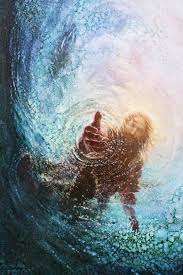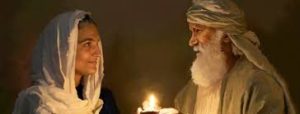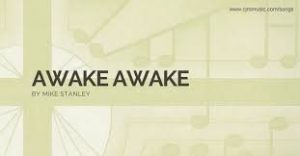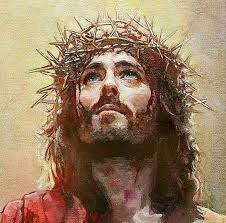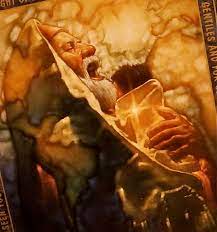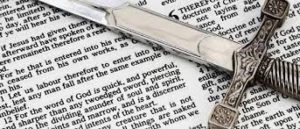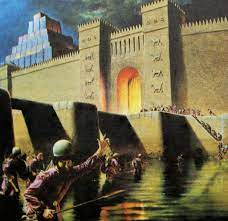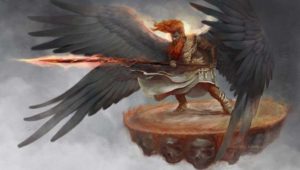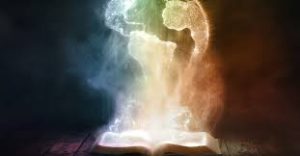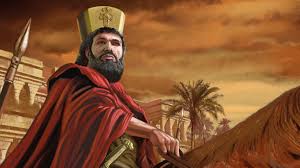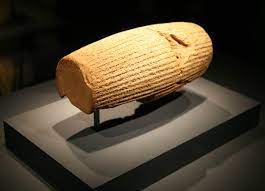Iv – Awake! Rise Up, O Jerusalem, You Who Have Drunk of His Wrath 51: 17-23
Awake, Awake! Rise Up, O Jerusalem,
You Who Have Drunk the Cup of His Wrath
51: 17-23
Awake, Awake! Rise up, O Jerusalem, you who have drunk the cup of His wrath DIG: How do we know the context of this section is the Great Tribulation and not the destruction of Jerusalem in 586 BC by the Babylonians? Why must the Jews go through the Great Tribulation? What is the LORD’s ultimate purpose for them? What double calamities will Zion suffer? How will they be refined and tested? Why? When will Jerusalem drink the cup of God’s wrath for the last time? Why?
REFLECT: The world rulers in the end times will only see themselves as working to build up their own power, yet unwittingly, they will actually be accomplishing ADONAI’s plan to reach all types of people. Knowing how protective God feels about Isra’el, how does this make you feel about how He views you? When was the last time you felt God’s protection? Do you believe the LORD has plans to prosper you and not to harm you, plans to give you hope and a future? How do you feel about YHVH punishing those who are oppressing His children? Why doesn’t He allow everyone into heaven with His children? How far would you go to protect your children? Why are these eternal consequences necessary from God’s point of view?

This is a far eschatological prophecy to Jews living in Jerusalem during the Great Tribulation. Just like the Northern Alliance’s invasion of Isra’el before the Great Tribulation (see the commentary on Revelation, to see link click Bi – Set Your Face Against Gog, of the land of Magog, the Chief Prince of Rosh, Meshech and Tubal), ADONAI will seduce the antichrist and the armies of the world to Jerusalem to destroy them. The unholy trinity of Satan, the antichrist and the false prophet, hate the Jews, and their hate will ultimately be their undoing. The LORD affirms: I will gather all the Gentile nations to Jerusalem to fight against it (Zechariah 14:2a and 16a).
Yerushalayim will become the religious capital of the antichrist during the Great Tribulation. He will set up an image of himself in the Most Holy Place of the Tribulation Temple to be worshiped by the world (see my commentary on Revelation Dn – All the Inhabitants of the Earth will Worship the Beast). If found, the Jews will be persecuted and executed in Jerusalem. But with the help of the pro-Jewish sheep Gentiles (see my commentary on Revelation Fc – The Sheep and the Goats) an underground resistance will evidently be formed. Apparently this will be enough of a problem for the antichrist that he will proceed south from the Valley of Jezreel with his armies to obliterate them. The Jews will vigorously defend Zion, but inevitably they will be brutalized by the invading armies (Zechariah 14:2a). Half of Jerusalem will go into exile, but the rest of the people will probably be imprisoned, but will not be taken from the City (Zechariah 14:2b).
One of the three purposes of the Great Tribulation is to break the spiritual stubbornness of the Jewish people. The LORD, through His prophet, tells us: I will bring them into the fire; I will refine them like silver and test them like gold (Zechariah 13:9a). The persecution they will endure at that time will force them to choose between the counterfeit antichrist, or the Messiah. The unsaved Jews will call upon ADONAI to awake and deliver them from their physical plight; but at that time their spiritual needs will be even greater than their physical needs. God will tell them that it is not He that needs to be awakened. They are the ones who need to be awakened from their helpless condition and receive the promise that her warfare had been completed (40:2). Awake, awake! Rise up, O Jerusalem, you who have drunk from the hand of the LORD the cup of His wrath (51:17a). The defeat of the antichrist and his armies are in the background providing the imagery, but they are never mentioned explicitly.
You who have rained to its dregs the goblet that makes men stagger (51:17b). Zion is to be reminded that her judgment is a result of the Servant of the LORD in Chapters 49 and 50. The reason that Isra’el (pictured as Jerusalem) was lying helpless before the armies of the antichrist, was because of her sin. It was not God who needed to be awakened to action, but Isra’el who needed to be aroused to faith. Isaiah uses a reflexive verb here that actually means wake yourself, as God calls upon Isra’el to pay attention to her own condition of drunken stupor. If she lies sprawled out drunk on the ground now, it is not a result of her enemies. It is a result of the justice of God Himself. Thus, because her enemies did not put her there, they could not prevent her from getting up. When God’s wrath is put upon Jerusalem there will be four results in 51:18-20.
First, there will be depopulation. Of all the sons she bore there was none to guide her; of all the sons she reared there was none to take her by the hand (51:18). We have a picture of a drunken old woman whose children are either dead or so helpless that there is no one left to help her. In the whole Land, declares the LORD, two-thirds will be struck down and perish; yet one-third will be left in it (Zechariah 13:8). She is virtually helpless. Yet, God calls on her to stand. Since no one else can pick her up and lead her to salvation, then God will redeem her (Isaiah 40:11, 49:10; Psalm 23:2).
Secondly, there will be ruin and destruction for the City. The destruction will be so terrible that Jerusalem will experience double calamities, both spiritual and physical. A counterfeit Temple (see the commentary on Revelation Bx – The Tribulation Temple) will be sitting in Zion with an image of the antichrist in the Most Holy Place being worshiped by people around the world, and as noted above: The City will be captured, the houses ransacked, and the women raped. Half of Jerusalem will go into exile, but the rest of the people will probably be imprisoned, but will not be taken from the City (Zech 14:2). These double calamities have come upon you – who can comfort you – ruin and destruction, famine and sword – who can console you (51:19)?
Thirdly, they will be like antelope caught in a net. Left to her own devices, she was totally helpless and Isaiah uses several images to give us a snapshot of her situation: Your sons have fainted; they lie at the head of every street, like antelope caught in a net (51:20a). God says: I will gather all the nations to Jerusalem to fight against it; the city will be captured, the houses ransacked, and the women raped (Zechariah 14:2a). Why did this happen? The prophet wants to make it perfectly clear it was not by chance or the superior force of the enemy. It was their rejection of Messiah that will cause all of their suffering.
Fourthly, they will be filled with the wrath of ADONAI. They are filled with the wrath of the LORD and the rebuke of your God (51:20b). They will have drunk from His cup of wrath and have fallen senseless. Not just God, but their God who will send His rebuke upon His people. This is the same rebuke that dried up the Red Sea (50:2). One of the purposes of the Great Tribulation is to break the resistance of the Jews to the gospel. The more stubborn the child, the more severe the discipline. It is no wonder that the LORD had to go to such drastic means to let them get to the end of their pride and self-reliance. But ADONAI will also use the punishment of Jerusalem to gather in her enemies (Zechariah 14:2a). But the Day of wrath (Zephaniah 1:15) is coming when God will take this cup of wrath from the hands of Isra’el and it will be given to her enemies to drink (see Kh – The Eight Stage Campaign of Armageddon).
The context will not allow this to be a near historical prophecy of the return from the Babylonian Captivity. In fact, the return described in Ezra and Nehemiah are exactly opposite of what is described here. First, there was no depopulation because Jerusalem had been virtually deserted. When 49,897 exiles returned under Zerubbabel, the population increased (Ezra 2; Nehemiah 7:4-73, 11:1 to 12:26). Secondly, the Temple was not was not destroyed, but rebuilt (Ezra 5:1 to 6:22). Thirdly, the exiles were not caught like antelope in a net and God did not gather all the nations of the world to fight against Jerusalem because the wall of Yerushalayim was dedicated (Nehemiah 12:27-47). Fourthly, they were not filled with the wrath of the LORD because they were blessed (see the commentary on Ezra-Nehemiah Cr – Nehemiah’s Final Reforms). No, this is a far eschatological prophecy to the unbelieving Jews during the Great Tribulation.
Therefore, hear this, you afflicted one, made drunk, but not with wine (51:21). It is hard to imagine a clearer, near historical example of God causing Israel’s enemies to drink the cup they had once forced on Isra’el than that of Nazi Germany. From the Night of the Broken Glass in the early 1930s, when the windows of Jewish-owned stores were smashed and the goods looted, through the terrible destruction of the Warsaw ghetto, through the degradation and terror of the death camps, Germany made His people drink a cup of almost unimaginable horror.
Who now speaks to this drunk and afflicted one? Is it their judge, or their nemesis? No, it is their Comforter (40:1). If He was separated from her (50:1-3), it will not be forever because He is still her husband (Isaiah 54:5; Jeremiah 3:14; Hosea 2:16-19). It is the LORD of heaven’s angelic armies who defends her, and He intends to defend her from every charge brought against her (1:17, 38:8, 41:11 and 50:8). Jeremiah would say it this way: For I know the plans I have for you, declares the LORD, plans to prosper you and not to harm you, plans to give you hope and a future (Jeremiah 29:11). What God wants for them, and for all believers, is not to drink from the cup of wrath, but to drink from the river of life (see my commentary on Revelation Fw – Then the Angel Showed Me the River of the Water of Life, Clear as Crystal).
This is what your Lord ADONAI says, your God, who defends His people, saying: See, I have taken out of your hand the cup that made you stagger; from that cup, the goblet of My wrath, you will never drink again (51:22). The poor drunkard will wake up to a wonderful realization. The cup has been taken out of the hand that held it so justifiably. Wrath will be deserved, wrath will be handed out, but then, the wrath will be gone – and gone forever. The context of this verse cannot be the destruction of Zion in 586 BC by the Babylonians and the subsequent exile to Babylon because God says very plainly here: You will never drink from that cup of wrath again. And, of course, in 70 AD Jerusalem was leveled by Titus the Roman general and about a million Jews were killed, many by crucifixion. So the context here must be Jerusalem in the Great Tribulation, for indeed, after the Second Coming, Yerushalayim and God’s people would never drink from that cup again.
In the near historical sense, it is clear that God, who defends His people, held the German people accountable for the Holocaust in World War II. The goblet of His wrath had been taken from the hands of the helpless Jews and put into the hands of their tormentors, the all-conquering Nazis. The end came when the Red Army raped its way into Berlin. That was the final straw of degradation and humiliation. If Germany was permitted by God to do what it did, it was not able to escape His justice in the end.208
As Yeshua said: I tell you my friends, do not be afraid of those who kill the body and after that can do no more. But I will show you whom you should fear: Fear Him who, after the killing of the body, has the power to throw you into hell. Yes, I tell you, fear Him (Luke 12:4-5). The ultimate judgment for all those who have rejected Christ will be at the conclusion of the thousand-year messianic Kingdom. At that time the spiritually dead, great and small, will stand before the throne. The books will be opened and each person will be judged according to what they have done. If anyone’s name is not found written in the book of life, they will be thrown into the lake of fire (see my commentary on Revelation Fo – The Great White Throne Judgment). The enemies of God, whether in a near historical or a far eschatological sense, will not escape His judgment.
The judgment, again pictured as a cup to be drunk, would then be given to her tormentors who had walked over murdered Jewish bodies in Jerusalem. But I will put it into the hands of your tormentors, who said to you, “Fall prostrate that we may walk over you. And you made your back like the ground, like a street to be walked over” (51:23). In this way the justice of God will be proved. If He uses wicked people to discipline His own, it does not mean that the wicked will escape judgment (Habakkuk 2:4-20).
However, Isaiah would say to the antichrist and all the world who opposed the Jews during the Great Tribulation. They will be the ones who will drink the cup of God’s wrath, not the Jews, because God says that cup of wrath against Isra’el is full. God has dealt with Isra’el to the full and she will learn from God’s judgments. The one-third of the Jews left at the end of the Great Tribulation will be the believing remnant. They will call on My name and I will answer them; I will say, “They are My people,” and they will say, “ADONAI is our God” (Zechariah 13:9b). At that time, the cup of wrath will be taken from her hand. And to whom will it be given? God says: I will put it into the hands of your tormentors. Israel’s suffering will pass over to the antichrist, the armies and nations of the world. In relationship to Isra’el, we must always remember what God says concerning her: I will bless those who bless you and whoever curses you I will curse; and the peoples on earth will be blessed through you (Genesis 12:3).



